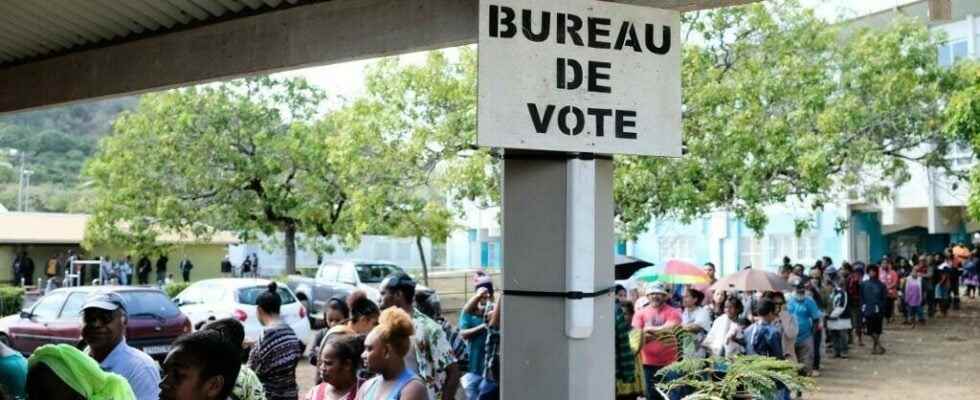Caledonians are called to the polls on Sunday. This will be the third and last self-determination referendum provided for by the Nouméa agreement, signed in 1998. A ballot that will take place without the separatists, who have decided not to participate in this vote which they had requested to be postponed, for good reason. coronavirus. All against a backdrop of internal dissension. So, 37 years later and for the first time, activists found themselves where Jean-Marie Tjibaou had united the separatists by raising the FLNKS flag for the first time.
From our correspondent in Nouméa,
It is a place steeped in history, invisible to those who do not know it, a simple pole erected between an iron wood and a litchi foot. But here in Tchaity in the heart of the Conception tribe, just 37 years ago, Jean-Marie Tjibaou raised the Kanak flag for the first time. We are in 1984, in the midst of an active boycott of the territorial elections.
A time which seems very distant to Freddy, militant of the first hour.
” Above all, we had elected officials leave. It was truly a government that no longer had anything to do with the French state. If we were 37 years back with the structures we had at the time, I don’t think it would have happened like that today. There is demobilization through the fault of our elected officials, it must be said. What I reproach the elected officials of the FLN in general is to be in armchairs and no longer be in contact with the base. “
Years, responsibilities, successive agreements and referendums have worn the independence leaders. Between the main components of the FLNKS, the UNI-Palika and the Caledonian Union, marriage has been right for a long time, permanent bickering.
As for the common refusal to participate in the vote on December 12, it is not unanimous either, this time among the militants.
► See also: One week before the referendum in New Caledonia, the campaign is slowing down
But on this day of commemoration, Yvette Danguigny, woman of all struggles, independence and feminists, believes that the Front is in the process of finding the path to unity.
“ We must find our way back before this date of the 12th, we the Kanak people, we need to recharge our batteries, to find ourselves again, because we may have got lost, because we could -be disputed on the road. We must go back to the source, look in our history for what happened to be able to have the energy, the strength to move forward better. She thinks.
It is ultimately on the fundamentals that the independence family finds itself. A family in search of recognition, while being linked to those who are called here the victims of history, descendants of settlers and deportees, rejected by France in the same way as the colonized.
It is also them that Marcel Qeneigeie thinks of when he dances with his company Wetr Creation, a dance in honor of the Kanak flag, which echoes the immediate news.
“ The goddess we are going to look for is living together. We have already been living together since school. There are also the cultural values that we try to teach the people we have welcomed. We must not hide it, here it is the country of the Kanaks, as France is the country of the French, as Germany is the country of the Germans. The only thing we are looking for is that we are recognized, that our culture is recognized He exclaims.
The referendum of December 12 will be played without half of the interested population, but for a few days, the Kanak flag has flown again in the sky of La Conception, reminding activists of this sentence by Jean-Marie Tjibaou: “As long as there is a Kanak on earth, he will demand independence.“
